Early Life of Riaz Shahid:
Riaz Shahid had opened his eyes in 1930 in Sub-Continent. He was a director, writer and newspaper editor, and journalist. The Magic and Memories of Legend Riaz Shahid was the father of the famous Pakistani film star Shaan Shahid. His real name was Sheikh Riaz, but all people called him Shahid [1]. There were many writers, producers and directors, some have been passed away and some are alive. There are few persons that are Khawaja Khurshid Anwar, Anwar Kamal Pasha and others.
| Basic information | Riaz Shahid. |
| Nationality | Pakistani |
| Religion | Islam |
| Date of Birth | 1927 |
| Place of Birth | India |
| Date of Death | 1st October 1972 |
| Place of Death | Lahore, Punjab, Pakistan |
| Age | 45 years old. |
| Marital Status | Married |
| Spouse | Neelo |
| College | Islamia College, Lahore. |
| Occupation | Film Director and Writer |
| Filmography | 1962–1972 |
| Famous for | Director and Writer |
| Awards | Nigar Awards of film Zarqa in 1969, Nigar Award for film Khamosh Raho in 1964 |
Education of Riaz Shahid:
He got his early education from the native area of the local school and did his intermediate from the Islamia College, Lahore, Pakistan. Riaz Shahid lived in Lahore, so he worked there and started the job of a journalist in the newspaper Chataan and after that, he joined the Faiz Ahmed Faiz’s Lail—O-Nihar. Faiz Ahmed Faiz, who was famous in the Sub-continent, his weekly Lail-o-Nihar read by Riaz Shahid, after reading the weekly Lail-O-Nihar, wrote a novel of which named “Hazar Dastaan” [1].
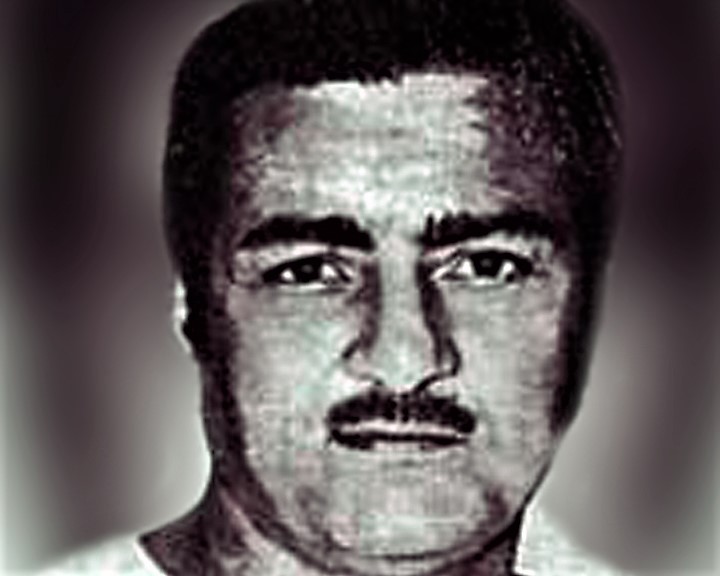
Celebration in the Soviet Union and his Novel Hazaar Dastaan:
Therefore, he was a Celebration in the Soviet Union. Shahid built up his communist leanings working under the writer. As a characteristic movement of his scholarly vocation, Shahid composed a novel Hazar Dastaan, before going to content composition. In 1958, Riaz Shahid began his movie profession as a content author for the film Bharosa. He was the author, chief, and maker of the film Susraal in 1962 [1].
Socialist Cinema for a Nearby Paper:
In his article Socialist Cinema for a nearby paper, Zulqurnain Shahid depicts the paramount working organization between Riaz Shahid and left-wing symbolist poet Habib Jalib. Their first cooperation occurred in the film Khamosh Raho, delivered in 1964. They were both taraqqi pasand (reformist) abstract figures who upheld hostility to settler warriors from Muslim foundations.
The film’s plot was apparently about a whorehouse proprietor’s arrangement of reinforced prostitution, yet it was multilayered. On a more profound level, it depicted the similitudes between organized relationships and prostitution. Strikingly, it additionally expected the 1965 battle between India and Pakistan. Just political insiders knew at the time that President Ayub Khan was proceeding with Operation Gibraltar inside Indian-held Kashmir. Jalib’s verses of “Main te to preet nibhai sanwarya re” (I have been dedicated to my darling) were not just about a lady singing to her trooper life partner yet, besides, Pakistan’s dirt getting everyone excited to ensure the holiness of her outskirts, security inside the fringes and an unpropitious admonition about the coming attack [1].
Jalib’s sonnet, Dastoor (The Constitution) that he read at Liaquat Bagh (Pindi) against Ayub Khan and for which he had imprisoned, remembered for the film after a slight change. The verses to the tune finished in [1]:
(Roman Urdu) “Tum nahee charagar,
English: (You are not the cure)
(Roman Urdu) Koee maney Magar,
English: (If somebody trusts it,)
(Roman Urdu) mein naheen manta.”
English: (I don’t trust it.)
The melody figured out how to pass the blue pencil board even though it was against martial law. Shahid composed the characters and exchange motivated by occasions being accounted for in the press. The massage parlor madam depends on Aqleem Akhter Rani, nicknamed General Rani, a lady who scandalously secured ladies for people with significant influence. As per the plot, the madam of the massage parlor uses the character played by Mohammad Ali (recently into acting he got a lot of approval for this function) to capture youthful town ladies for feudal and military officials.
Surely, his inner voice smites him and he battles from inside the massage parlor for equity. At the point when the film’s fundamental hero, an officer played by Yusuf Khan, shows up to separate the massage parlor, he lets him know, “Tum sarhad kee hifazat Karo, andar murmur sambhal lein ge.” (You defend the fringe; we’ll protect it from within). Thusly, Shahid represented the connection between the regular citizen-government and the military throughout Pakistan’s political history. The two scholars were brave in their defiant feeling [1].
Films of Riaz Shahid and Neelo Casting:
In 1966, he composed and coordinated the Punjabi film Mr Allah Ditta, in which Neelo had projected. During the shooting, their sentiment started. For his movie Zarqa, that he created, coordinated, and composed, Shahid again cast Neelo. Somewhere between the recording of the film, an emotional occurrence happened. Famous for her moving, Neelo, who at this point had won two Nigar Awards for Best Supporting Actress in 1959 and 1963, had authoritatively gathered to move for the Shah of Iran on an official visit to the nation in 1965.
Allegedly, the occupant Governor of West Pakistan, Nawab of Kalabagh, Amir Mohammad Khan undermined her and requested she move for them at the Governor’s House. Realizing that Riaz Shahid would not support, a hesitant and anxious Neelo crumbled on the floor while moving and pretended obviousness. Some even guaranteed that she had attempted to end it all, gulping an overdose of dozing pills while in transit to the Governor’s House. She had hurried to the emergency clinic where specialists resuscitated her. In this manner, Neelo showed her dependability and steadfastness to Shahid [1].
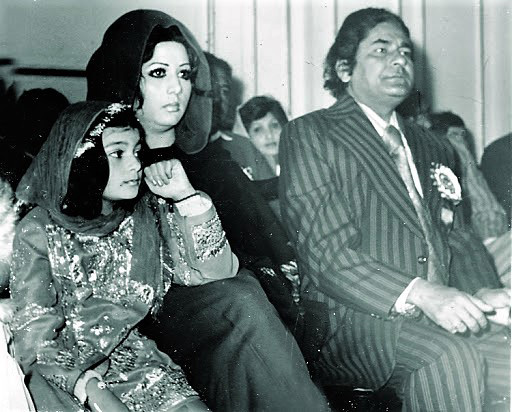
Habib Jalib deified this episode in his sonnet named Neelo:
(Roman Urdu) “Too ke nawaqif-i-aadab-i-shahenshahi thee”
English: (You are unaware of the tenets of imperialism)
(Roman Urdu) Raqs zanjeer pehen kar bhee kiya jata hai!”
English: (You can also dance in fetters)
Neelo Convert into Islam After Marriage with Riaz Shahid:
Not long after this occurrence, Riaz Shahid wedded Neelo and gave her his security. She changed over to Islam and had given the name Abida. Zarqa had delivered in 1969 the very year that President Ayub Khan gave over control of capacity to General Yahya Khan and it turned into the characterizing film of Neelo’s vocation. Shahid’s film, considering the Palestinian-Israeli clash, is an illustration.
Neelo, in the nominal part of Zarqa, is a Muslim Palestinian devotee of Yasser Arafat and a captive who had been caught by the Israelis. She had constrained by an Israeli general, played by Taalish, to move and upon refusal, she had sufficiently whipped and ignited with lit cigarettes. The genuine episode, which Riaz Shahid fearlessly fused in the film, affected this scene. The phrasings of Jalib’s sonnet had changed in the tune to [1]:
(Roman Urdu) “Too ke nawaqif-i-aadab-i-ghulami hai Abhi”
English: (You are unaware of the tenets of slavery!)
(Roman Urdu) Raqs zanjeer pehen kar bhee kiya jata hai!”
English: (You can also dance in fetters!)
Toward the finish of the tune “Aaj qatil ki ye marzi hai” (Today the killer is requesting this) Zarqa expresses Allah with such discernible feeling and torment that the crowd likewise endures with her. Through imagery, Shahid and Jalib portrayed the Palestinian predicament and deceived Neelo’s genuine mortification, bitterness, and enduring, making this the most well-known scene of the film. Zarqa turned out to be such a success that it turned into Pakistan’s first jewel celebration, which means it played for over 50 weeks at the films and Neelo got her first Nigar Award for Best Actress [1].
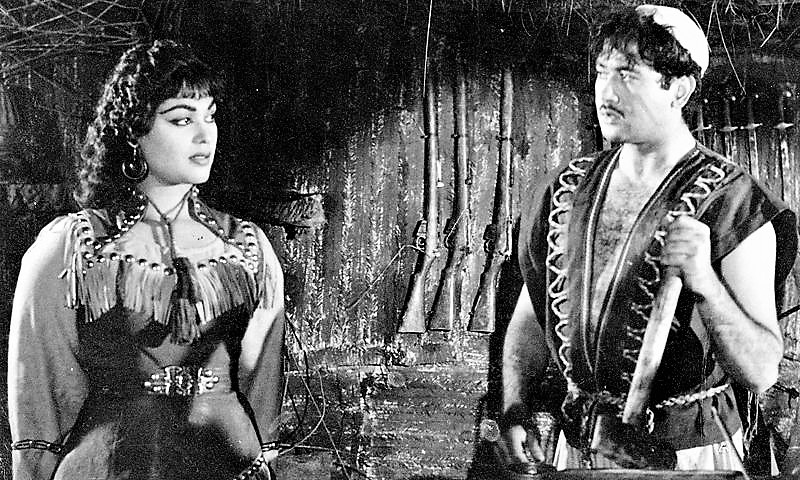
Riaz Shahid’s 2nd Marriage:
After this, Neelo died and was no more in Riaz Shahid’s life. Shahid and Abida named their oldest kid, an infant young lady, Zarqa, who had currently hitched with offspring of her own. At that point, came Shaan, named Armaghan upon entering the world in 1971, trailed by the most youthful, Sarosh who has additionally shown up in two movies [1].
Death and Last Film of Riaz Shahid:
Shahid’s last film was Yeh Amn, a film on Kashmir. Jalib wrote two melodies for this film, including the hit tune Zulm rahey aur amn bhee ho, sung by Noor Jahan and Mehdi Hasan. Not long after the film had delivered, Shahid Riaz kicked the bucket of leukaemia in 1972 [1].
Films of Abida for her Children’s Future:
Even though crushed, life needed to continue for Abida, who needed to deal with her small kids. To help her family, she continued her profession by featuring in the hit film Khatarnaak, another precious stone celebration film, in 1974 for which she had again granted a Nigar for Best Actress. She likewise kept on delivering films under her significant other’s standard with Baheesht (1974). She won two more Nigars for Best Producer and Best Film. Her last Nigar was for Jat Kuryan Tu Darda (1976). In 2013, she showed up in Waar, a Shaan starter [1].
Shaan Shahid, The Son of Riaz Shahid:
Shaan, the most famous and popular Pakistani film star of our occasions with over 500 movies amazingly, made his film debut in 1990 featuring in Javed Fazli’s film Bulandi inverse Reema Khan. He has won many honors including one Pride of Performance, four National Film Awards, 15th Nigar Awards, five Lux Style Awards, and one every Pakistan Media Award and ARY Films Award [1].
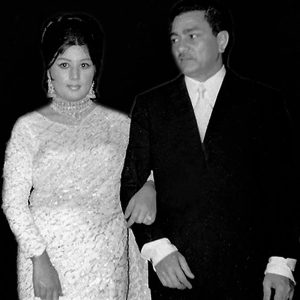
Filmography [2]:
There are many films by Riaz Shahid which were directed and written by him.
Riaz Shahid as a Film Director [2]:
There are some films which were directed by Riaz Shahid. The list of films given below:
i. Susral in 1962
ii. Zarqa in 1969 (this was a diamond jubilee film)
iii. Gharnata in 1971
iv. Yeh Aman in 1971
Riaz Shahid as Film Writer and Producer [2]:
i. Shaheed in 1962
ii. Kahmosh Raho in 1964 (it was the film on which he got Nigar award as the writer)
iii. Kaneez in 1965
iv. Aag Ka Darya in 1966
v. Badnaam in 1966
Awards of Riaz Shahid [2]:
i. He got the Nigar Award in 1969 for the Best Director film Zarqa.
ii. Again, he got the Nigar Award in 1964 for the Best writer of film Kahmosh Raho.
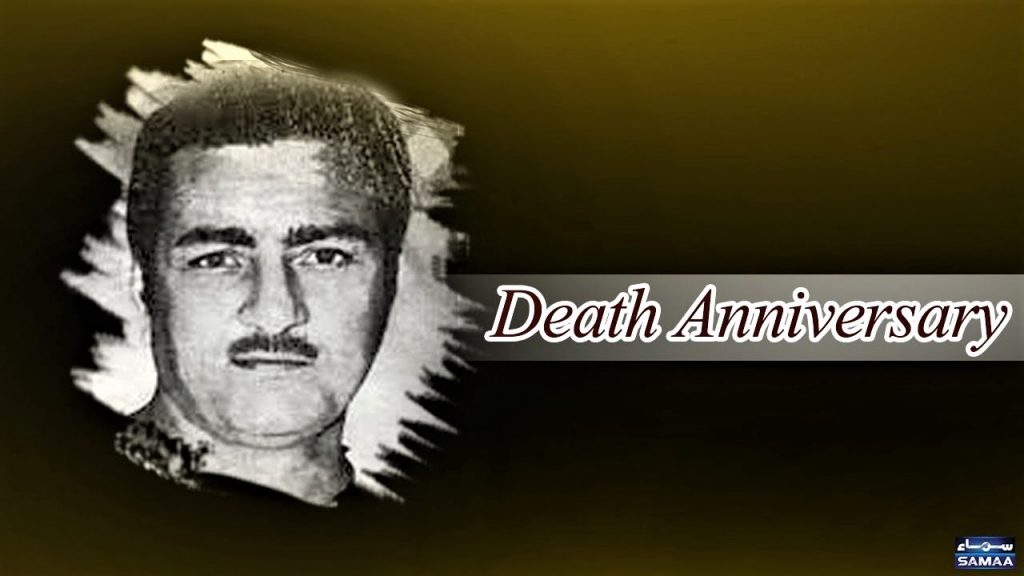
References:
- en.wikipedias. 14th October 2020; Available from: https://en.wikipedia.org/wiki/Riaz_Shahid#Early_life_and_career
4 Replies to “The Magic and Memories of Legend Riaz Shahid”